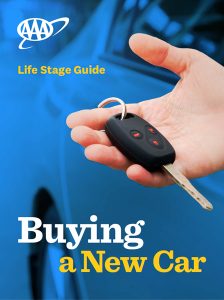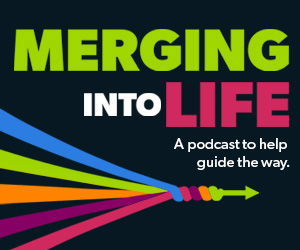The holidays are a favorite time for scammers to take advantage of people who are distracted by the hustle and bustle of the season. To keep yourself (and your wallet) safe, make sure to stay up to date on the different types of tricks scammers like to pull. A common scam around the holiday season is known as a gift card scam, or gift card fraud. When you know how the scams work, it’s far easier to spot them.
How Do Gift Card Scams Work?
Gift cards are for gifts but scammers want to make you believe that they can be used for payments. A gift card scam will usually start off with a call, text or email, asking you to pay for something using a gift card. Once you buy the card requested, the scammer will ask you to give them the numbers. But no legitimate business or government agency will ever ask you to pay this way.
The reason scammers ask for gift cards is because they’re basically like cash, and they have far fewer protections than other payment options, like credit or debit. Once you’ve paid for the gift cards and given them access, you’re never going to see that money again.
There are other types of gift card scams focused on stealing money from gift cards, like scanning their magnetic stripes or harvesting a leftover gift card balance, so we’ve included some explanations for them too.
Different Types of Gift Card Scams
To find out more about different types of gift card scams, we looked to the experts at Norton 360. Here’s what they found.
The IRS: Scams work best when you’re frightened or nervous, so often scammers will impersonate agencies like the IRS to throw you off. The scammer will say they are from the IRS and that you have unpaid taxes. They might even threaten to arrest you if you don’t pay, right away, in gift cards. Just remember that the actual IRS would never request payment in gift cards or threaten to send you to jail. In fact, the IRS would not contact you over the phone, through email or in a text. They would send a letter to your home.
The Power Company: Similar to the IRS scam, the scammer in this case will pretend to be a utility company and say that you owe them money. They might even threaten to turn off your power or water – unless, of course, you pay back the balance in gift cards. Real utility companies don’t accept payment in gift cards, so don’t listen to them.
The Prize: You won! You won! Well, not so much. This scam works by making you excited, instead of scared. The scammer will contact you via email, phone or text and inform you that you’ve won a lottery, a sweepstakes or another prize, like a car or a trip. The only thing you have to do is pay a fee to claim your prize – and you have to pay with a gift card, of course. But you can’t win a lottery or sweepstakes that you never entered, and no prize will make you pay a “claiming fee” in gift cards. Some things are just too good to be true.

The Bots: Some scammers have automated systems that can access gift card balances of cards that have been activated but not used yet. Once they have the card information, they can use your card balance themselves or even sell it for cheap to other buyers on the dark web. The only way to avoid this scam is to use your gift cards as soon as possible, and try not to leave any extra money on the balance.
The Number Thief: Thieves carrying a magstripe reader can read and store the numbers on the magnetic stripes on gift cards. Some thieves will go into a store and scan racks of gift cards that haven’t been activated yet. Later, they can use the card numbers to call customer service and see which cards have been activated, and even learn their remaining balances. Then they can use the gift card numbers themselves. To avoid buying a card that’s secretly been scanned, don’t buy gift cards off store racks – especially racks that don’t have any sort of surveillance during shopping hours. It’s safer to buy them at the register or from the retailer’s website.
The Online Auction: If you see an online auction for a gift card, you’re not actually getting a good deal. Gift cards on online auction sites are often not activated, so you’re actually buying a useless piece of plastic. The best way to buy gift cards online is directly from the retailer’s website.
Looking for more ways to stay safe online? Norton 360 offers a password manager, real-time threat protection, cloud backups for your information, a secure VPN, dark web monitoring and more. Learn how AAA members can save on Norton 360 subscriptions.
Have online scammers ever tried to scam you? Tell us your story in the comments below!
2 Thoughts on “How to Protect Yourself From Gift Card Scams”
Leave A Comment
Comments are subject to moderation and may or may not be published at the editor’s discretion. Only comments that are relevant to the article and add value to the Your AAA community will be considered. Comments may be edited for clarity and length.

















Yes I was scamed by someone who said they were a government agent and were dolling out grants to people and what’s worse they used a long time friend to say it was legitimate and that he himself paid the same way got the money for his house in Florida where he lives and this was in the early days of this yr Jan thru Feb and they took me for 15,000 which I can’t get back I took the problem to the police and detectives and I am on file the person goes by the name michael Wayne bfag
And the both of them ruined my life no one believes me at credit card companies so I am stuck with trying to find away to pay off the bills they left behind for me to pay I am on a fixed income I am a senior citizen 66 yrs old and I am stuck paying this huge bill on my cards and I don’t know how to get out of it I was having some mental issues at the time and it seems they found me as a target. It started off that my longtime friend contacted me and told me about getting some money and did I get mine yet and I said no and thats when he set me up with getting in touch with michael Wayne bfag and sent me a link to his website and then things went downhill from there my friend was saying he fronted some money for me to get started so I wouldn’t lose out on the deal of getting my government grant that could be issued to me and I believed my friend and I only got deeper involved and now I am on the loosing end of the stick and with no way out
Thanks for reading, Anthony. I’m so sorry that this happened to you! Hopefully by sharing your story you can stop something similar from happening to others.
-Sarah